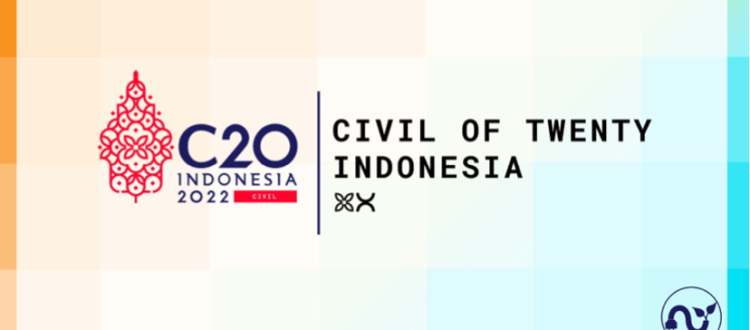ITALIAN CLIMATE NETWORK JOINS CIVIL SOCIETY’S DIALOGUE WITH THE G20
G20 countries play a pivotal role in the efforts to limit global temperature rise to +1.5°C, being collectively responsible for around 75% of global greenhouse gas emissions. And indeed, if all G20 members aligned their emission reduction targets with the Paris Agreement’s goals, this would be enough to limit end-of-century global warming to +1.7°C. However, 2030 targets announced so far by the G20 are mostly insufficient: they would require very steep emission reductions from 2030 to 2050, a pathway that is hardly feasible and thus puts the net-zero goal at risk.
With this in mind, pressuring the world’s largest economies can be critical to keep the +1.5°C scenario alive. And that’s where the official G20 engagement groups come in, as they allow different stakeholders to engage with G20 governments.
One of them is C20 (Civil 20), which gives a voice to civil society and involves organisations from all the 20 member countries[1] and beyond. With a view to push for more ambitious policies, throughout the year the C20 hosts dialogues with government representatives from the country holding the Presidency (this year it’s Indonesia’s turn) and other G20 members. Then, after months of consultations among civil society organisations, the C20 sends its policy recommendations to the G20 governments ahead of the Leaders’ Summit.
This year, Italian Climate Network is also involved in the process, and contributes to the work of the “Environment, Climate Justice & Energy Transition” Working Group (consultations are broken into different thematic working groups).
The Working Group identified the following priority issues to guide its recommendations:
1. Ensuring inclusive climate actions and energy access by considering the rights of vulnerable communities;
2. Fostering the implementation of a green economic recovery in advancing climate resilience and mitigating climate change, by upscaling the scope and accessibility of climate finance, and promoting the growth of green jobs;
3. Encouraging an appropriate carbon pricing mechanism to achieve net zero emissions;
4. Accelerating just, decentralised, and measurable energy transitions by deploying clean technology for renewable energy and addressing the threat of coal as stranded asset;
5. Protecting and restoring key vital ecosystems to build climate adaptation measures;
6. Conserving marine and coastal ecosystems to promote a healthy and resilient marine environment;
7. Improving resources efficiency and waste management system to reduce plastic litter.
Since March, Italian Climate Network has been working with other civil society representatives on drafting the proposals to be submitted to G20 governments. The hope is to push countries to raise the bar on ambition and achieve tangible progress at this year’s Summit. While the 2021 Rome Summit’s final declaration had some strong points (e.g. it recognised the importance of the +1.5°C goal and of achieving net zero), the chosen wording is still too vague. In the text, the G20 members commit to holding the global temperature increase well above +2°C (preferably +1.5°C) and to aligning their medium- and long-term commitments, but this commitment is not translated into concrete terms, nor is a clear roadmap established to monitor progress.
Article by Teresa Giuffrè, Italian Climate Network Volunteer
[1] Argentina, Australia, Brazil, Canada, China, France, Germany, India, Indonesia, Italy, Japan, Republic of Korea, Mexico, Russia, Saudi Arabia, South Africa, Turkey, the United Kingdom and the United States, plus the European Union

